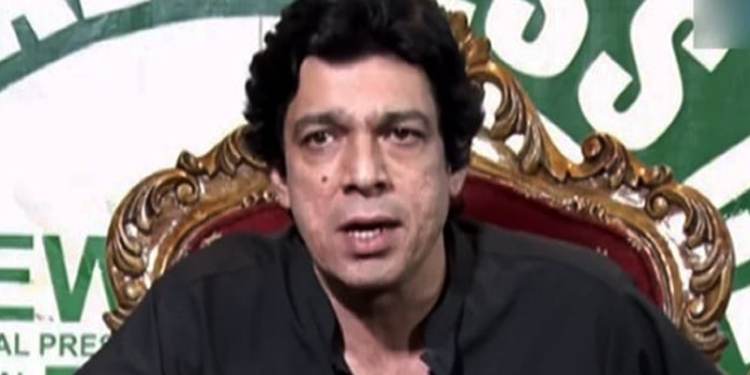ISLAMABAD: The Supreme Court of Pakistan, led by Chief Justice Qazi Faez Isa, convened on Friday to examine details of a press conference held by independent Senator Faisal Vawda, addressing his contentious remarks against the judiciary. This session forms part of a suo motu case initiated in response to Vawda’s statements, which have sparked significant controversy.
The three-member bench, which also includes Justice Irfan Saadat Khan and Justice Naeem Akhtar Afghan, is tasked with evaluating the implications of Vawda’s comments made during his recent press conference. On Wednesday, both Vawda and PML-N’s Talal Chaudhry held separate media briefings, where they challenged claims made by Islamabad High Court (IHC) judges regarding alleged interference by intelligence agencies in judicial matters. They asserted that without concrete evidence, such accusations against state institutions are unfounded.
This controversy was ignited by a letter sent in late March by six out of eight IHC judges to the Supreme Judicial Council (SJC), alleging severe coercion tactics, including the abduction and torture of their relatives and secret surveillance within their homes. These judges highlighted these concerns as attempts to manipulate judicial proceedings.
Adding to the complexity, this week Justice Babar Sattar of the IHC penned a letter to IHC Chief Justice Aamer Farooq, detailing a breach of his family’s personal data. Justice Sattar’s correspondence comes in the context of his ongoing efforts to address the audio leaks case, wherein he has summoned the heads of intelligence and investigation agencies as well as pertinent ministries.
In his press conference, Senator Vawda stressed the need to cease targeting institutions and questioned the timing of Justice Sattar’s public outcry, which emerged a year after the alleged interference. Vawda urged the judges to present any evidence of such claims, promising his support if they did. He also criticised the delay in receiving requested details from the IHC regarding communications between the former IHC Chief Justice Athar Minallah and Justice Sattar concerning the latter’s US green card status. Despite a 15-day waiting period, Vawda reported no response from the IHC.
The IHC’s additional registrar, Ijaz Ahmed, responded on May 14, clarifying that residency or citizenship information is not part of the requirements for appointing a high court judge. The registrar also noted that there is no official record of discussions related to Justice Sattar’s green card during the Judicial Commission of Pakistan’s (JCP) deliberations.
Talal Chaudhry, in his press conference, remarked that judges should issue formal notices rather than writing letters if there is any interference.
Notably, in 2013, the JCP rejected senior lawyer Anis Jilani’s appointment to the IHC due to his dual nationality, highlighting the stringent scrutiny applied to judicial appointments concerning dual citizenship.









